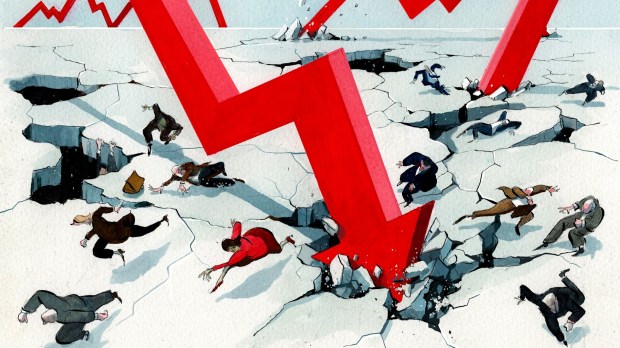Hounds are baying for the blood of former star investment manager Neil Woodford, whose shrinking funds have closed for withdrawals. His promoters such as the broker Hargreaves Lansdown have also been taking media flak, as has the Financial Conduct Authority, whose critics say it should have spotted the problem early and intervened. There are suggestions that Woodford and his associates have made ‘a huge pile of money’ (to quote Merryn Somerset Webb in the FT) out of an over-puffed venture in which small investors are now stuck — and that all those responsible should queue up for a public lashing from the Treasury select committee.
So it goes: as a parable of financial hubris, this looks like an open-and-shut case. But I return to the point I made last week, that Woodford was one of the few big investors willing to put money into smaller, innovative companies and that was, in principle, a good thing; indeed, this column has frequently trumpeted the value of trying to pick potential winners in fields of science in which UK laboratories excel. The problem for Woodford’s multibillion vehicle is that those small holdings were by nature illiquid and represented what now looks like an imprudently high proportion of his funds, not least because when investors started to pull out, he was forced to sell his more liquid holdings in larger listed companies first.
The real lesson is never to be seduced by ‘star stock-pickers’ and to remember that any large collective fund can’t be expected to do much more than track major indices and give you your cash back when you ask for it. By all means back science-based start-ups as well; but do it yourself, on the basis of your own research. That’s more satisfying if you turn out to be good at it; and you’ll have no one else to blame if you’re not.
Book trade saviour
The fate of the last American bookstore chain might not normally concern this column — except that the $683 million takeover of Barnes & Noble by the private equity firm Elliott Management represents a salute to a British entrepreneur, James Daunt, who has almost single-handedly kept the high street book trade alive despite the ravages of Amazon. A former J.P. Morgan banker, Daunt acquired his first bookshop in Marylebone High Street in 1990 and built a small chain before taking the helm at Waterstones in 2011 on behalf of its then Russian owner and returning it to profit after a run of losses. Persuaded that Daunt has a winning formula, the famously hard-nosed Elliott bought Waterstones last year and has now asked him to transform Barnes & Noble’s struggling 600 stores.
Elliott’s aim, of course, is to sell these chains for a lot more money than it paid: but in order to do so, it will have to fund Daunt to upgrade and reposition them rather than close them down. There was a time when everyone thought books themselves would die, to be replaced by digital devices, but they didn’t. Then we thought every last bookshop would be eaten alive by online discounting; but that Darwinian shift too seems to have been arrested just in time — and it’s James Daunt we have largely to thank.
Can Dagenham survive?
‘There’s a cloud hanging over the Ford engine plant at Bridgend, where investment has been cut and jobs are at risk,’ I wrote in March 2017. Last week’s closure news came as no surprise to anyone who watches the automotive industry, and the real question is whether Ford’s larger Dagenham engine plant is also under threat, given wider rationalisation pressures on Ford itself.
This industry is in such rapid contraction — with the combined catalysts of Brexit, electrification and the retreat from diesel — that every manufacturer knows this is a good time to bury bad news. The tariffs and logistical blockages that would accompany the no-deal outcome now look daily more likely, making shifting production out of the UK an obvious bet. The cheaper pound that might bring a post-Brexit trade boost in other sectors won’t make much difference in an industry whose supply chains involve continuous import as well as export of components. It gives me no pleasure to say that the critical mass built up by 40 years’ worth of inward investment in our car factories is cumulatively more at risk with every individual cutback announcement. When we look back in a decade’s time, I fear the only surprise will be the speed at which this landmark industry was lost.
Speed date
Greetings from Innovator House in the heart of Sunderland’s Enterprise Park, a model of economic reinvention on former shipbuilding land alongside the river Wear. ‘Aha,’ you’re thinking, ‘Martin’s on a mission to track down the last digital start-up in the north of England that hasn’t already entered this year’s Disruptor Awards No, I’m here for a ‘speed awareness’ course.
I suppose I might have tried to track down the digital camera manufacturers whose products, lurking behind every other roadside bush, have become so disruptive to happy-go-lucky motoring, but the top names turn out to be Dutch (Sensys Gatso) and South African (Truvelo). I might also have found a course closer to home, but I thought Sunderland might offer a livelier selection of fellow miscreants — perhaps including workers from the nearby Nissan factory driven to road-rage by remorse at having voted Leave, along with their cohort in other industrial towns, and thereby contributing to the endangerment not only of their own industry but of all forms of inward investment from Japan and elsewhere.
But that’s another story, and I’ll make no jokes about the genial crew with whom I actually shared the correctional classroom: I learned a different lesson long ago when a jibe about the propensity for ‘motorised crime’ in the north-east earned me a headline in the Middlesbrough Evening Gazette: ‘Slur in toffs’ magazine.’
Got something to add? Join the discussion and comment below.
Get 10 issues for just $10
Subscribe to The Spectator Australia today for the next 10 magazine issues, plus full online access, for just $10.
You might disagree with half of it, but you’ll enjoy reading all of it. Try your first month for free, then just $2 a week for the remainder of your first year.















Comments
Don't miss out
Join the conversation with other Spectator Australia readers. Subscribe to leave a comment.
SUBSCRIBEAlready a subscriber? Log in